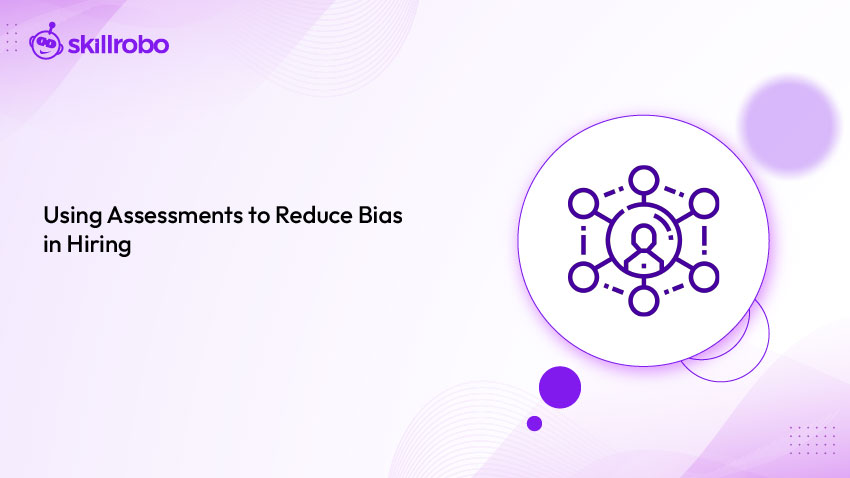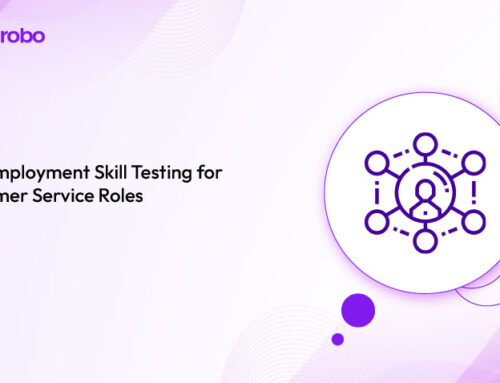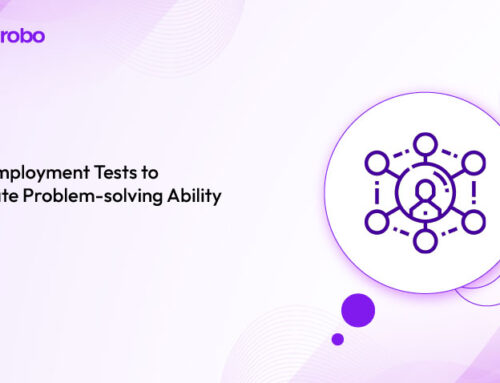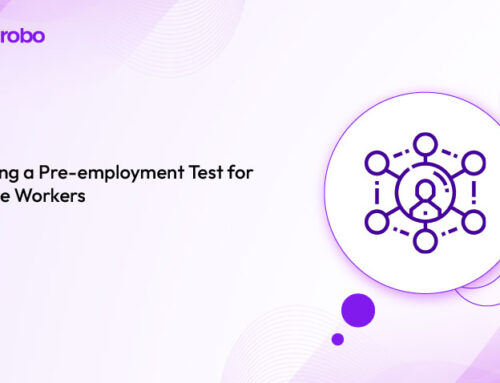
Key Takeaways
- Skill-based assessments help reduce hiring bias by focusing on actual capabilities rather than personal background or subjective impressions.
- Structured assessment methods promote consistency across all candidates, ensuring fair and equal evaluation.
- Objective evaluations strengthen trust in the hiring process and enhance candidate experience.
- Incorporating unbiased assessments into recruitment leads to better hiring decisions and a more diverse workforce.
- Reducing bias in hiring contributes to long-term improvements in team performance, culture, and retention.
Hiring bias—often unconscious—continues to challenge fair decision-making in recruitment. Even well-intentioned hiring managers can lean on familiarity or assumptions, influencing who gets hired and who gets overlooked. Over time, this weakens diversity, limits innovation, and reduces access to qualified talent.
Structured assessments offer a practical solution. By shifting the focus from personal impressions to job-relevant skills, these tools create a more consistent and fair hiring process.
A study by Harvard Business Review revealed that 76% of HR professionals admit bias impacts hiring, especially when relying on resumes or unstructured interviews. To build more inclusive teams, organizations must move beyond intuition and use tools that measure what truly matters—skills, potential, and performance.
In this blog, we explore how structured assessments reduce hiring bias, how HR teams can implement them effectively, and how tools like Skillrobo support equitable hiring practices.
Understanding Bias in Hiring
Bias in hiring shows up in subtle ways, such as assumptions based on a candidate’s name, education, background, or even how well they “fit” into an existing team culture. These tendencies, though unintentional, result in homogeneous workplaces and missed opportunities.
Even experienced recruiters are susceptible to these biases, especially under time pressure or without structured hiring practices in place. Over time, unchecked bias can create systemic patterns that disproportionately affect underrepresented groups.
Common Bias Types
Unconscious bias leads hiring managers to favor candidates similar to themselves, often without realizing it. Affinity bias, halo effect, and confirmation bias all distort how candidates are perceived, leading to evaluations based on familiarity instead of merit.
These biases can manifest in ways as small as assuming someone is more competent because they share a background or interest with the interviewer. Learn more about how unfair hiring practices affect recruitment and organizational growth.
Impact on Diversity
Bias narrows the talent pool and hinders progress on diversity and inclusion goals. Teams lacking diverse perspectives often struggle with innovation and adaptability. Organizations that fail to address bias risk missing out on candidates who bring fresh ideas, global perspectives, and broader problem-solving approaches. Promoting diversity requires actively dismantling biased systems and building hiring processes rooted in fairness and objectivity.
Subjective Pitfalls
Relying heavily on resumes or casual interviews allows bias to creep in. These methods focus more on presentation than proven skills and performance. Resumes may highlight polished language or prestigious affiliations, but rarely offer a true measure of day-to-day competencies. Similarly, informal interviews often reward charisma over capability, leading to hires who may not be the best fit for the role’s actual demands.
Assessments counteract these issues by offering a structured way to evaluate candidates based on competencies, not assumptions. By shifting the focus to evidence-based testing and role-relevant criteria, organizations can level the playing field and make more inclusive, data-driven hiring decisions.
How Assessments Counter Hiring Bias
Skill assessments create a level playing field by evaluating every applicant on the same criteria. Instead of guessing who might be the best fit, hiring teams can use performance data to make decisions that are fair and aligned with job requirements. This structured approach removes ambiguity and helps organizations shift from assumption-based hiring to evidence-driven evaluation.
Objective Skill Focus
Assessments evaluate candidates on measurable skills such as analytical thinking, communication, or problem-solving. This reduces the influence of subjective impressions and keeps decisions focused on what candidates can do. Unlike resumes or interviews, skill tests provide a quantifiable snapshot of job readiness.
Standardized Process
Every candidate completes the same test under the same conditions, removing variability from the evaluation process and reinforcing fairness. Standardization ensures consistency across departments and locations, allowing HR teams to compare candidates on equal terms. This is particularly helpful in high-volume or multi-location hiring.
Blind Evaluations
Removing names or demographic details during scoring ensures hiring decisions are based solely on performance and potential. Blind testing removes cues that might trigger unconscious bias, such as names, gender, or educational background. It encourages an impartial view of candidates and supports truly inclusive hiring.
Job-Relevant Criteria
Assessments can be customized to match the exact requirements of the role. This ensures that candidates are judged on skills that truly impact success in the position, such as software proficiency, decision-making ability, or customer interaction style. Explore more about competency assessment tools that support role-specific evaluation and help tailor tests to organizational needs.
Benefits of Bias-Reduced Hiring
Reducing bias through structured assessments leads to better-quality hires, stronger teams, and more inclusive work environments. This approach ensures that hiring decisions are guided by skill and performance, not assumptions or familiarity. Over time, it fosters a more equitable company culture and supports long-term organizational success.
Enhanced Diversity
Skill-based evaluations open opportunities for candidates from all backgrounds by focusing on what they can do, not where they come from. This levels the playing field for underrepresented groups who may not have access to traditional credentials but possess the right capabilities. A diverse team also brings broader perspectives, improving problem-solving and innovation.
Improved Job Fit
When hiring decisions are based on objective data, candidates are better matched to the role—leading to higher productivity and engagement. Assessments help ensure alignment between individual strengths and role requirements, reducing the risk of misplacement. The result is a workforce that performs more efficiently and adapts quickly to evolving needs.
Stronger Employer Brand
Fair and transparent hiring practices build trust among candidates and help attract top-tier talent. Organizations that prioritize equitable recruitment processes are seen as more progressive, inclusive, and employee-centric. Learn more about the value of skill-based assessments in improving hiring outcomes and shaping a positive employer reputation.
Reduced Turnover
When the right people are hired for the right roles, retention improves. Employees are more likely to thrive and stay when hired based on merit. They feel valued for their contributions, which increases engagement, loyalty, and long-term commitment to the organization.
Strategies to Reduce Bias with Assessments
To fully benefit from assessments in hiring, HR teams must thoughtfully design and apply them. A well-implemented assessment process can significantly reduce bias, while a poorly planned one can create new inconsistencies. It’s not just about using assessments—it’s about building a system that is fair, relevant, and aligned with organizational values.
Define Clear Criteria
Set specific benchmarks for the role—whether technical, cognitive, or behavioral—and design assessments that reflect those expectations. Avoid vague descriptors like “leadership qualities” unless clearly defined through observable traits or skills. This helps create a transparent standard that all candidates are measured against equally.
Use Mixed Test Formats
Incorporate a combination of skills-based, situational, and behavioral assessment methods to get a well-rounded view of each candidate’s potential. Each test type offers unique insights—technical tests gauge functional capability, while behavioral assessments evaluate interpersonal and emotional intelligence. A mix also prevents over-reliance on one dimension of a candidate’s profile.
Implement Blind Scoring
Removing identifying details during the scoring process prevents any bias from influencing the final outcome. Names, photos, age, or educational institutions can all unintentionally affect judgment. Blind scoring ensures that decisions are based strictly on performance and capability, not background details.
Train Hiring Teams
HR teams and hiring managers should be educated on bias awareness and how to interpret assessment results fairly and accurately. Regular training workshops can help teams identify their blind spots and reinforce consistent evaluation practices. When everyone involved understands the purpose and mechanics of the assessments, the process becomes more trustworthy and inclusive.
How Skillrobo Supports Fair Hiring
Skillrobo helps organizations implement structured, bias-reducing assessments at scale. Its platform allows HR teams to create role-specific assessments tailored to technical, cognitive, or behavioral requirements.
With features like anonymized scoring, real-time analytics, and flexible assessment formats, Skillrobo supports consistent, data-driven hiring decisions. This ensures every candidate is evaluated fairly, on their skills, not their background.
Conclusion
Bias in hiring can limit access to top talent and prevent organizations from building truly diverse, high-performing teams. Assessments offer a clear, structured way to reduce this bias, replacing assumptions with measurable data.
By focusing on skills, potential, and role-specific capabilities, hiring becomes more equitable and aligned with business goals. Tools like Skillrobo help streamline this process, enabling companies to make smarter, fairer hiring decisions at scale.
Ready to transform your hiring process with structured assessments?
Sign up for Skillrobo and build a more inclusive, skill-first workforce.









